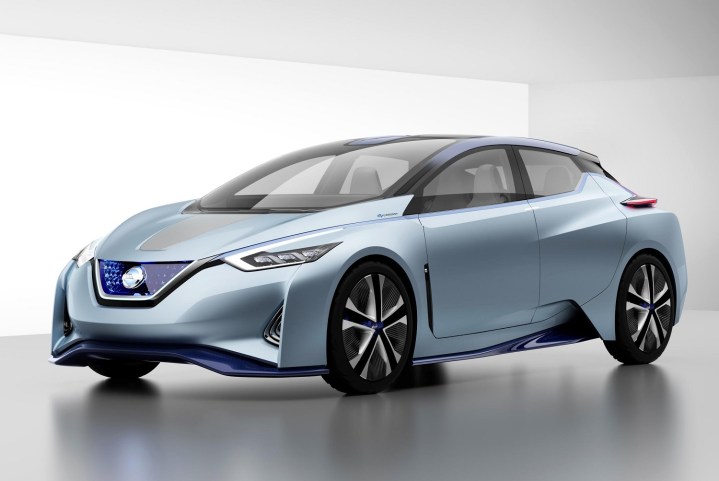
The strategy is similar to Tesla’s. Nissan has previously pointed out that electric vehicles need to offer at least 185 miles of range to suit the needs of mainstream buyers, so we’re betting that’s about how far the base model will be capable of going on a single charge. At the other end of the lineup, the range-topping Leaf could leverage recent advances in battery technology to offer a generous 340-mile range. Mid-range models will fill the gap between the two extremes.
Nissan expects the longer range will convince more buyers to kick their gasoline habit. The company is putting a big focus on the European market, where electric cars have been slow at best to catch on. Currently, six percent of the cars Nissan sells in Europe annually are powered by a battery-electric drivetrain. The company expects that figure will rise to 20 percent by 2020, thanks in part to the second-generation Leaf.
Surprisingly, Nissan credits Tesla for helping make electric cars a viable alternative to gasoline- and diesel-burning models in the minds of consumers. The California-based car maker has proved that EVs aren’t just appliances; they can be trendy and desirable, too.
“Having Tesla, the visibility for the technology is a massive benefit,” explained Gareth Dunsmore, the director of Nissan’s zero-emissions business unit, in an interview with British magazine Autocar. “Go to Google, type in ‘EV’ and we’re there.”
Read more: Nissan wants to expand its electric lineup with a crossover and a sports car
The next-gen Leaf isn’t expected to break cover until 2018. When it lands, it will borrow a handful of styling cues from the fully autonomous IDS concept (pictured) that was shown last year during the Tokyo Auto Show.
Editors' Recommendations
- Here’s how Ford will give EV customers Tesla Supercharger access
- Tesla reveals target date for new electric vehicle launch
- The Tesla Cybertruck is here, but how does it compare with the competition?
- How to watch Tesla’s Cybertruck delivery event if you missed it
- How to watch Tesla’s Cybertruck delivery event today




